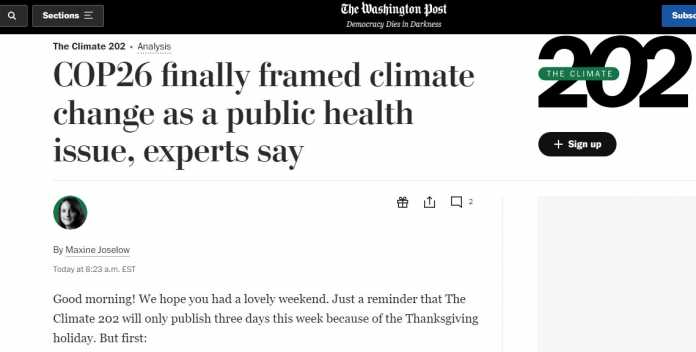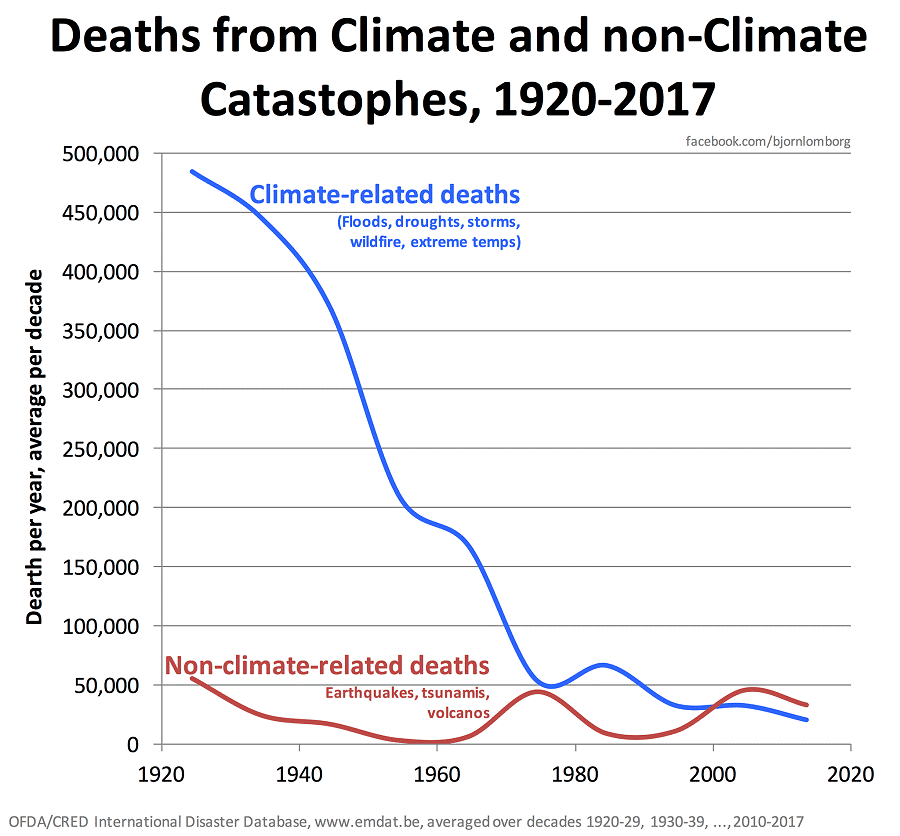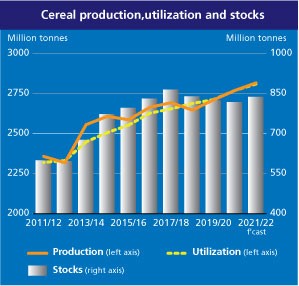The Washington Post ran a story publicizing claims made by some public health authorities at COP-26 that climate change was causing a public health crisis. Contrary to the alarming claims made by those medical practitioners attending COP-26 and promoted in the Washington Post, data show public health has improved during the recent period of modest warming. Premature mortality related to temperatures and extreme weather have declined sharply, as have deaths from starvation and malnutrition. There is no reason to believe the health benefits of a warmer world won’t continue.
The Washington Post prominently featured a story, titled “COP26 finally framed climate change as a public health issue, experts say,” noting the medical community was given a forum, a health pavilion, at COP-26 for the first time. Their message: Climate change is world’s biggest public health threat.
[H]ealth professionals are finally feeling acknowledged by the global climate community.
More than 100 doctors and nurses traveled to Glasgow earlier this month with a message for world leaders: Global warming is a leading threat to public health. And curbing planet-warming emissions is a prescription.
…
Even before the conference in Glasgow, there was a growing recognition in the medical profession that rising global temperatures imperil millions of lives.
The Lancet, a top medical journal, warned in October that climate change is set to become the “defining narrative of human health,” as my colleague Sarah Kaplan reported at the time.
In a special report, the WHO also called climate change “the single biggest health threat facing humanity,” noting that its effects could be more catastrophic than the coronavirus pandemic.
Had the Washington Post done a modicum of independent research it would have found claims of a climate change induced public health crisis are false. Health improvements have accompanied, and in part been driven by, modest warming and higher carbon dioxide concentrations.
As discussed on Climate Realism here, here, and here, for example, after 100 years of climate change, deaths tied to extreme weather have fallen to near zero. Real-world data, released at the end of 2020 shows that “climate-related deaths” have declined by more than 99 percent during 100 years of “global warming” back to 1920. (See the figure).
Deaths and health related hospitalizations related to non-optimum temperatures have also declined significantly during the modern warming.
For example, as explored in Climate Realism here, here, and here, multiple peer reviewed studies published over the past decade have consistently shown, colder than average temperatures kill and result in the hospitalization far more people than warmer than average temperatures. As a result, as the earth has modestly warmed, temperature related deaths have fallen by the hundreds of thousands each year.
The benefits of more atmospheric carbon dioxide and a modestly warming world on hunger and malnutrition are equally clear. Despite the addition of 3.2 billion people to the planet since 1968, poverty and hunger have plummeted at a faster rate than at any other time in human history. Although 840 million people worldwide are still undernourished, the United Nations reports the number of hungry people has declined by two billion since 1990. Research shows there is now 17 percent more food available per person than there was 30 years ago—all occurring during the period of purportedly dangerous climate change.
The reasons for the decline in hunger and malnutrition is booming crop production which is due in large part to increases in atmospheric carbon dioxide. As documented in the Non-Governmental International Panel on Climate Change volume, “Climate Change Reconsidered II: Biological Impacts, global warming lengthens growing seasons, reduces frost events, and makes more land suitable for crop production. Also, carbon dioxide is an aerial fertilizer for plant life. In addition, crops use water more efficiently when benefiting from more atmospheric carbon dioxide, losing less water to transpiration.
As a result of this combination of factors, the United Nations Food and Agriculture Organization (FAO) reports crop production has set new records repeatedly year during the past few decades, as the figure below shows.
As reported in Climate Realism, here, here, here, here, here, here, here, and here, for example, for crop after crop, in country after country, records for annual yield and production are set almost yearly.
Data also provide no evidence climate change is causing an increase in incidences of tropical diseases. The myth that climate change is causing the spread of viruses and mosquito borne illnesses, like malaria and dengue fever, have been thoroughly refuted on Climate Realism here, here, and here, for instance.
Contrary to the claims made by the alarmist group of doctors and nurses prominently featured at COP-26 and by the Washington Post, the evidence is clear, deaths from disease, extreme weather and temperatures, and lack of food, have all declined sharply during the past 150 years of modest warming. Evidence from agronomy, biology, physiology, and virology, all suggest deaths and illnesses related to climate should continue to decline in the foreseeable future if modest warming continues.
Sadly, good news such as this, grounded in hard data, doesn’t sell papers or ad space so the Washington Post ignored it.



















